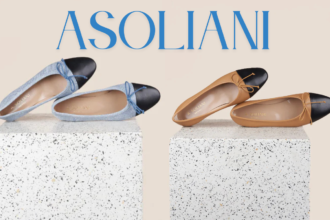The phrase “ero me” is one of those mysterious expressions that pop up across internet spaces, sparking curiosity, speculation, and sometimes controversy. Though short and seemingly simple, “ero me” carries layered meanings that shift depending on context, culture, and audience. It’s a term that blurs the boundaries between self-expression, digital identity, and even erotic or artistic intent.
Often seen in online forums, fan art communities, or social media bios, “ero me” evokes a persona—one that may embody sensuality, aesthetic beauty, or a form of alter-ego designed for digital interaction. But it’s also a term shrouded in ambiguity, with meanings ranging from playful and creative to serious and symbolic. The fascination with “ero me” lies in this fluidity—how it can mean different things to different people while still holding a sense of mystery.
This article delves deep into the phrase “ero me”—exploring its origins, interpretations, cultural significance, controversies, and how it is shaping online self-expression. Whether you’re an artist, writer, social media user, or simply someone who stumbled upon the term, this guide will help you understand the many layers of “ero me.”
Tracing the Origins of “Ero Me”
Etymology and Linguistic Roots
The phrase “ero me” appears to be a hybrid term, drawing from multiple linguistic sources. “Ero” is often understood as a shorthand for “erotic” in many languages, particularly in Japanese subcultures like anime and manga, where it denotes mature or sensual themes. Meanwhile, “me” in English is the self—one’s personal identity. When put together, “ero me” can be interpreted as “the erotic version of myself” or “my sensual persona.”
In classical languages, the prefix “ero” can also have different implications. In Greek, “eros” refers to romantic or passionate love, one of the key types of love in ancient philosophy. This adds a layer of depth to the phrase, suggesting not just sexuality, but desire, affection, and emotional intensity. Such linguistic origins give “ero me” a poetic as well as provocative tone.
The dual linguistic roots create a phrase that’s both expressive and subjective, allowing users to mold it into whatever suits their digital identity. The lack of rigid definition is part of its charm, and part of why it continues to evolve with internet culture.
Historical Usage or Emergence
Though there’s no definitive timestamp for the birth of “ero me,” its usage can be traced back to early 2010s internet culture, particularly in niche communities on platforms like Tumblr, DeviantArt, and later, Twitter and TikTok. It often appeared in image captions, user bios, or art tags. Its rise in visibility coincided with the boom of anime and manga fandoms online, where “ero” was already a well-known genre label.
Creators began to use “ero me” to distinguish NSFW or stylized content that presented a more intimate or fantasy-driven version of themselves. It became a way to signal artistic content that was sensual, exaggerated, or deliberately provocative—but without necessarily crossing into explicit territory.
The phrase evolved not through dictionaries, but through practice, gradually gaining cultural weight as it spread across fan circles and creative niches. As digital spaces diversified, so too did the ways people engaged with the idea of presenting a different—or more daring—version of themselves through “ero me.”
Ero Me in Modern Culture
Use in Pop Culture, Media, or Art
“Ero me” has become an integral element of pop culture, especially in artistic communities that focus on visual storytelling. From digital illustrators on Instagram to VTubers on YouTube, creators use “ero me” to signal an alternate persona that may not reflect their real-life identity, but offers a deeper or more stylized version of their self-image. In this sense, “ero me” isn’t just about eroticism—it’s about transformation, fantasy, and character-building.
In fan art and cosplay, for example, the term is used to tag images that are sensual but also highly stylized—emphasizing aesthetics over explicitness. It allows artists to explore boundaries in a way that feels safe, empowering, and deliberate. Pop culture icons and influencers have also started embracing similar concepts, giving rise to alternate accounts or characters that represent their “ero me” persona.
This blending of fantasy and reality is a hallmark of digital identity in the 21st century. “Ero me” represents a curated self—not just for attention, but for creative freedom. It allows people to explore aspects of their identity that might not fit within traditional boundaries, offering an expressive outlet through pop culture.
Digital and Internet Slang Context
On the internet, words move fast—and “ero me” is no exception. As a piece of internet slang, it functions both as a descriptor and as a form of self-branding. In Twitter bios, TikTok captions, or Reddit tags, “ero me” can be shorthand for “this is my spicy side,” or “this is where I share more personal, stylized content.”
It’s commonly paired with other terms like “alt,” “NSFW,” or “lewd,” creating a vocabulary of digital selfhood that is fluid and often subcultural. Because of this, “ero me” has been embraced by communities that value identity play and boundary-pushing, such as LGBTQ+ artists, indie creators, and alternative fashion influencers.
The casualness of its usage makes it versatile—it can be playful, ironic, bold, or sincere. But it also underscores the blurred lines of digital personas, where users can present multiple facets of themselves depending on the context. In this way, “ero me” becomes a kind of coded expression, understood intuitively by those who inhabit the same cultural spaces.
Controversies and Misconceptions
Misinterpretation Across Cultures

Because “ero me” draws from several languages and subcultures, it’s prone to misinterpretation. In English-speaking circles, the phrase might be seen as overtly sexual or provocative, while in Japanese or anime-centric communities, it may be more normalized and artistic. These cultural nuances can cause confusion or even offense when the term is misunderstood.
Translation barriers and differing norms about online content often exacerbate these issues. A user tagging their artwork as “ero me” might be expressing empowerment or character design, while someone unfamiliar with the context might interpret it as explicit or inappropriate. This disparity emphasizes the need for cultural awareness in global internet spaces.
Misinterpretations are also common among casual social media users, who may assume “ero me” is simply NSFW without understanding its more artistic or persona-based intentions. As the phrase continues to spread, it’s crucial for digital communities to educate and contextualize its use rather than police or misjudge it.
NSFW Connotations and Social Stigma
There’s no denying that “ero me” carries NSFW undertones. After all, the “ero” prefix is often associated with eroticism. But not all content labeled “ero me” is explicit. The stigma stems from broader internet biases that conflate sensuality with obscenity—especially when it involves femme-presenting users or queer creators.
Many platforms have ambiguous rules around suggestive content, leading to shadowbans or account suspensions. This has impacted how openly people can use terms like “ero me,” even when the content is artistic or metaphorical rather than explicit. Some creators now use cryptic hashtags or alternative spellings to avoid automated moderation.
This tension reflects larger societal struggles over who gets to express themselves freely online. “Ero me,” in this light, becomes a symbol of resistance—an assertion of identity and autonomy in spaces that often censor expression under the guise of policy.
How Ero Me Is Shaping Online Expression
A Symbol of Digital Self-Expression
At its core, “ero me” represents freedom—the ability to craft a digital self that reflects parts of you that may be hidden, exaggerated, or entirely fictional. It gives creators, influencers, and everyday users a language to describe their alternate persona, often one that is bolder, more sensual, or more artistic than their “main” identity.
This kind of persona-building is central to digital life. From Instagram filters to VTuber avatars, people are constantly exploring who they are (or want to be) online. “Ero me” fits perfectly into this landscape—offering a shorthand for self-curation and identity play that feels both modern and timeless.
It’s not just a label—it’s a concept. And as more people embrace their multifaceted selves online, “ero me” is likely to become a staple in the digital vocabulary of self-expression.
Conclusion
“Ero me” is more than a phrase—it’s a cultural signpost in the ever-evolving world of digital identity. With roots in art, language, fandom, and internet slang, it has grown into a powerful expression of selfhood, creativity, and transformation. It allows individuals to claim space, shape their narratives, and explore aspects of themselves they may otherwise keep hidden.
Whether you’re an artist channeling a bold persona, a fan navigating fandom culture, or a curious observer, “ero me” offers a lens through which to understand the playful, provocative, and profoundly personal world of online expression. As the digital landscape continues to shift, this phrase will likely grow with it—fluid, expressive, and unapologetically real.
FAQs
Q1: What does “ero me” mean literally?
Literally, it can be interpreted as “the erotic version of me” or “my sensual self,” but meanings vary with context.
Q2: Is “ero me” considered inappropriate or NSFW?
Not necessarily. While it can be associated with suggestive content, it’s also used in artistic and persona-based contexts.
Q3: Where did the term “ero me” originate from?
It likely emerged from Japanese pop culture and Western internet subcultures, particularly in anime and art communities.
Q4: Is “ero me” used in anime or manga?
Yes, especially in fan communities and tags to indicate a stylized or mature version of a character or persona.
Q5: Can “ero me” be used as a username or persona online?
Absolutely. Many use it to define an alternate or expressive online identity.
You May Also Read: https://topbuzusa.com/




